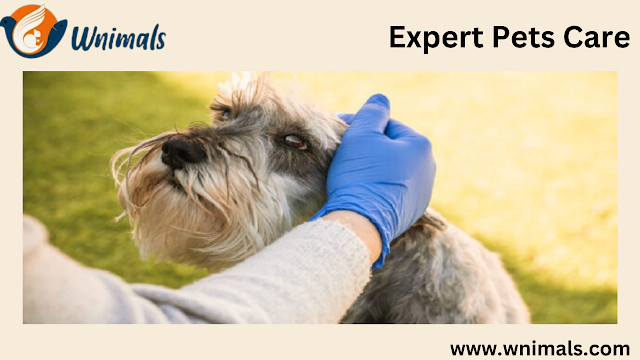Expert Pets Care Tips for Healthy Companions
Pet Nutrition: Expert Tips for a Healthy, Happy Pet
Pet nutrition plays a crucial role in ensuring the health and well-being of your furry companions. Just like humans, pets need the right balance of nutrients to thrive and live long, healthy lives. In this guide, we will provide expert tips on nourishing your pet, from choosing the right food to ensuring they get the necessary nutrients for optimal health.

Why Pet Nutrition Matters
Proper nutrition is fundamental for your pet’s overall health. A well-balanced diet can help maintain a healthy weight, promote a shiny coat, boost energy levels, and prevent chronic conditions. As a pet owner, it’s your responsibility to understand your pet’s dietary needs and provide them with the best possible nutrition.
Key Elements of Pet Nutrition
Choose High-Quality Pet Food Selecting high-quality pet food is one of the most important steps in ensuring your pet’s health. Look for food that is tailored to your pet’s age, breed, and size. Premium brands often contain more natural ingredients and fewer fillers like corn or soy.
Consult a Veterinarian for a Customized Meal Plan Every pet is unique. Whether your pet is a puppy, kitten, or senior animal, their nutritional requirements change. It’s essential to consult a veterinarian or pet nutritionist to develop a customized meal plan that aligns with your pet’s health needs.
Incorporate Supplements and Treats Wisely Supplements, such as omega-3 fatty acids or joint health vitamins, can complement your pet’s diet. However, they should be used responsibly. Too many treats or supplements can lead to obesity or other health problems.
Hydration is Key Just like food, water is essential to your pet’s health. Make sure your pet always has access to fresh, clean water to stay hydrated, especially after exercise or during hot weather.
Common Mistakes in Pet Nutrition
Overfeeding or Underfeeding The right portion size is critical. Overfeeding leads to obesity, while underfeeding can cause malnutrition. Always follow the feeding guidelines provided on the food packaging and adjust based on your pet’s activity level.
Neglecting Special Dietary Needs If your pet has allergies, health issues, or is on medication, their nutritional needs may differ. A tailored diet is necessary to address these specific requirements.
Feeding Human Food Some human foods, like chocolate, onions, and grapes, are toxic to pets. Stick to pet-safe food to avoid harmful side effects.
Creating a Safe and Enriching Environment
In addition to proper nutrition, a safe and stimulating environment is essential for your pet’s overall well-being. Create a space where they can feel comfortable, engage in physical activities, and enjoy mental stimulation.
Mental Stimulation
Interactive toys, puzzle feeders, and training sessions provide mental exercise for your pet. Regular playtime keeps your pet’s mind sharp and helps to prevent boredom, which can lead to destructive behavior.
Comfort and Safety
Ensure your home is pet-proofed by removing hazardous items and securing areas where your pet shouldn’t go. A comfortable space with cozy bedding, a safe environment, and plenty of toys will support your pet’s physical and emotional health.
Conclusion
Proper pet nutrition is a key component of a healthy and happy life for your furry companions. By understanding their nutritional needs, consulting with experts, and offering the right food and supplements, you can help your pet thrive. Don’t forget to provide a safe and enriching environment, along with regular vet visits, to ensure your pet lives a long, happy life by your side.
For further insights into pet nutrition, check out the American Kennel Club’s Pet Nutrition Guide.
finally thank you for your time
